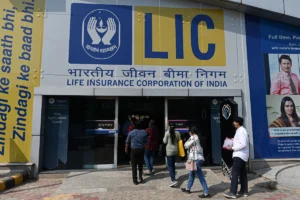
Acute myocardial infarction, often known as a heart attack, is a dangerous condition that develops when the heart muscle’s blood supply is abruptly interrupted. It was once believed that myocardial infarction (MI) was a problem specific to the elderly. It used to be exceedingly rare for someone under 40 to have a heart attack, but today one in five heart attack patients is under 40. Here’s one more unsettling statistic to highlight the problem: A heart attack in your 20s or early 30s is more common.
In addition to other consequences, coronary heart disease (CHD) can cause myocardial infarction (MI), which can even be fatal in an instant. When the illness strikes a young person, it can be financially burdensome for both the patient and their family because it causes severe suffering, affects mental health, and necessitates short-term medical expenses.
Common causes of MI among patients aged less than 35 can be due to:
(1) Poor Lifestyle Routine
(2) Excessive drinking and smoking
(3) Overweight
(4) Stress
(5) Hypertension, and
(6) Diabetes
Also read: Working in night shift? These are must follow 7 lifestyle tips to maintain health status
Due to factors that strain the cardiovascular system, such as obesity, smoking, and inactivity, the prevalence of coronary heart disease has gradually increased among young individuals. One of the essential organs of the human body, the heart is necessary for the body to function. Blockages in the arteries that carry blood rich in oxygen can cause blood flow to be interrupted or cease entirely, which can lead to a heart attack.
Identifying MI
Your primary care physician will examine your medical history and do a physical examination, including blood pressure, pulse rate, ECG, echocardiography, and troponin test, to determine whether your symptoms are consistent with a myocardial infarction (MI).
As a result, a comprehensive assessment is required to identify any possible risk factors linked to your heart injury.
The available treatments for acute MI
A doctor must act quickly to treat conditions like acute MI or heart attacks in general. Primary angioplasty and urgent coronary angioplasty are the definitive treatments for acute MI. Rarely, a patient may require alternative arterial revascularization techniques.
Also read: Working in night shift? These are must follow 7 lifestyle tips to maintain health status
The following drugs are administered in addition to interventional procedures:
- blood thinners
- Antiplatelet drugs
- Pain & stress relievers
- Medications that can help in dissolving clots
- Medications for blood pressure, etc.
- Preventing the condition of MI
You can live a longer, healthier life by starting early. Here are a few quick suggestions to lower your chance of having a heart attack when you’re young:
- Consume a healthy, fiber-rich diet.
- Cut back on salt and sodium intake
- Avert packaged food.
- Observe your cholesterol, blood pressure, and blood sugar levels
- Give up smoking and stay away from passive smoke
- Continue leading an active life
Acute MI is a dangerous illness, and the rising number of incidents in young adults should be considered seriously as a warning indicator. Fortunately, you may lower your risk of contracting this deadly illness with self-care, vigilance, and a healthy lifestyle.
To read more such news, download Bharat Express news apps






















